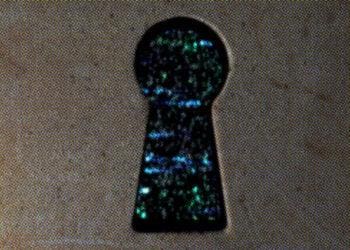As Moderna’s CFO-for-a-day gaffe illustrates, effective due diligence is equivalent to regular preventive care, something you’d think a pharma giant might understand. But as due diligence and risk management expert Candice Tal discusses, some companies are still unaware of the danger inherent in not digging deep enough, especially when it comes to high-profile positions.
The day after Jorge Gomez joined Moderna as its chief financial officer, an SEC filing by his former employer, Dentsply Sirona, revealed an internal accounting probe was underway. Gomez resigned May 10, serving just one day as Moderna’s CFO.
Moderna was apparently unaware that Dentsply’s board of directors had received information early in March from current and former employees that alleged incentives to sell products to Dentsply’s distribution partners may not have been “appropriately accounted for” in the last fiscal year’s financial reports, artificially boosting financial results.
As described in Dentsply’s May 10 filing, “The Audit Committee is also investigating allegations that certain former and current members of senior management directed the company’s use of these incentives and other actions to achieve executive compensation targets in 2021.”
Even though Gomez only worked for a single day, according to Moderna’s 8-K filing, he will receive 12 months’ salary equal to $700,000 and forfeit new equity awards, relocation reimbursements and a $500,000 signing bonus. After his departure, Moderna further negotiated claw back payments of the $700,000 severance if Gomez was found to have been involved in misconduct at Dentsply Sirona.
Moderna’s due diligence defense
It is not hard to draw the connection between Dentsply’s May 10 SEC filing and Gomez stepping down the same day. Moderna admits they thought it the best course of action. According to a report by EndPoints News, “within an hour of learning about the probe, Moderna CEO Stéphane Bancel met with the company’s chief legal officer, chairman of the board and external counsel to discuss and schedule a meeting with the full board.”
While acting quickly after Dentsply’s filing went public, company representatives were equally quick to defend their questionable attention to due diligence, a spokesperson telling EndPoints News, “The May 11, 2022 announcement and departure of Jorge Gomez from Moderna strongly reflects the seriousness with which Moderna takes corporate governance. We are confident that Moderna conducted all appropriate due diligence on this matter prior to the hiring of Mr. Gomez, based on available information.”
Moderna co-founder and current board chairman Noubar Afeyan told the Financial Times that legal constraints prevented the company from learning about Dentsply’s internal investigation earlier. Afeyan further said, “Both the process of recruiting and vetting, and the process with which we reacted to the new facts that came out, were completely appropriate. I can’t think of a different approach that we could have used under those circumstances.”
The need for quality due diligence
In spite of Moderna’s claims that they did sufficient and “appropriate” due diligence, it begs the question why did they not uncover any red flags? What kind of due diligence investigations did they conduct? Did they default to a routine pre-employment background check and reference interviews? Who oversaw these due diligence measures? What were their qualifications?
Perhaps Afeyan can’t think of a different approach in due diligence because he is unaware that there are different levels of due diligence. Many companies simply conduct standard background checks, which are not sufficient due diligence, particularly when hiring C-suite executives.
Standard background checks usually look at only four or five components, including verification of education, employment history and criminal history. Routine background checks give only a small snapshot of public information and fail to capture substantial amounts of detail. Routine background checks are unsuccessful at taking a comprehensive look into an executive’s involvement in other business entities, lawsuits, reputation, behavioral history and other risk exposures.
Executive background checks, or “deep-dive” due diligence, should always be conducted when hiring executives and board members. Tier 3 due diligence looks at more than 25 types of public records and open source intelligence — highly specialized intelligence and deep web searches. This is combined with in-depth review of media and news sources.
Some examples of issues that in-depth due diligence can uncover that would not be found in a standard background check include: alias names, con artists and fraudsters, misrepresentation and misconduct at prior jobs, damaged business reputation, SEC violations, breach of contract history, history of sexual harassment, fraud, money laundering, embezzlement, bribery, interstate bankruptcy, intellectual property theft, manslaughter and murder. This list highlights a few of the issues that can be found. Improper business relationships, inappropriate behavior and work with sanctioned governments may also be detected.
Due diligence on executives and employees is not a one-and-done prospect. It is something that should be periodically repeated as determined by a particular company’s industry, business sector and other risk factors. It should be noted that Dentsply had prior issues with executives and board members.
Preventive care
Information of potential wrongdoing within the company was known to Dentsply’s board since early March 2022, as various employees and ex-employees had come forward with their concerns. Information was available, though likely not public without some investigation.
Dentsply’s April 19 SEC filing revealed that it had hired replacements for Gomez and CEO Don Casey, with employment agreements being reached April 16. No reason was given for Casey’s abrupt departure, with the company simply saying he’d been terminated April 19. Gomez’s last day was scheduled for May 6. The overlap of dates and lack of reasoning behind Casey’s termination are red flags, and this is the type of information that skilled investigators could have uncovered.
Dentsply had prior dealings with the SEC, and Casey was not the first CEO to leave abruptly. In September 2017, then CEO-Jeffrey Slovin suddenly resigned along with COO Christopher Clark and Executive Chairman Bret Wise. The announcements of their departures “came just six weeks after the company acknowledged the SEC’s Division of Enforcement had asked the company ‘to provide documents and information concerning the company’s accounting and disclosures, including its accounting and disclosures relating to transactions with a significant distributor of the company,’” according to the Charlotte Business Journal.
In December 2020, the company agreed to pay a $1 million civil penalty in connection with an SEC investigation into violations of the 1934 Securities Exchange Act. It seems evident that due diligence was also not conducted by Dentsply on its executives and board.
Regardless of the outcome of the internal investigation by Dentsply and its cooperation with the SEC, Moderna could have benefited from better preventive care, and certainly from due diligence investigation prior to the hiring of Gomez.
Information surrounding Dentsply’s internal happenings was available. Instead, it wasn’t until the symptom (the internal investigation) became fully public knowledge that the diagnosis became obvious. This due diligence failure cost Moderna $700,000 and a significant drop in stock prices, not to mention recruitment fees to replace the new CFO, reputation damage that will last for years and a likely shareholder lawsuit in the future.
It is very telling that Moderna’s representatives have claimed that they “are confident that Moderna conducted all appropriate due diligence on this matter prior to the hiring of Mr. Gomez, based on available information.” After all, risk mitigation can only occur if the risks are identified in the first place.



 Candice Tal is CEO and founder of Infortal Worldwide, a security and risk management consultancy. She is a trusted adviser with over 30 years’ experience in helping companies mitigate risks to their business, employees and corporate assets to maximize operational success. Candice is a licensed private investigator (PI 15304 CA) with a BS (Hons) in Science and M.S. Science coursework.
Candice Tal is CEO and founder of Infortal Worldwide, a security and risk management consultancy. She is a trusted adviser with over 30 years’ experience in helping companies mitigate risks to their business, employees and corporate assets to maximize operational success. Candice is a licensed private investigator (PI 15304 CA) with a BS (Hons) in Science and M.S. Science coursework.







